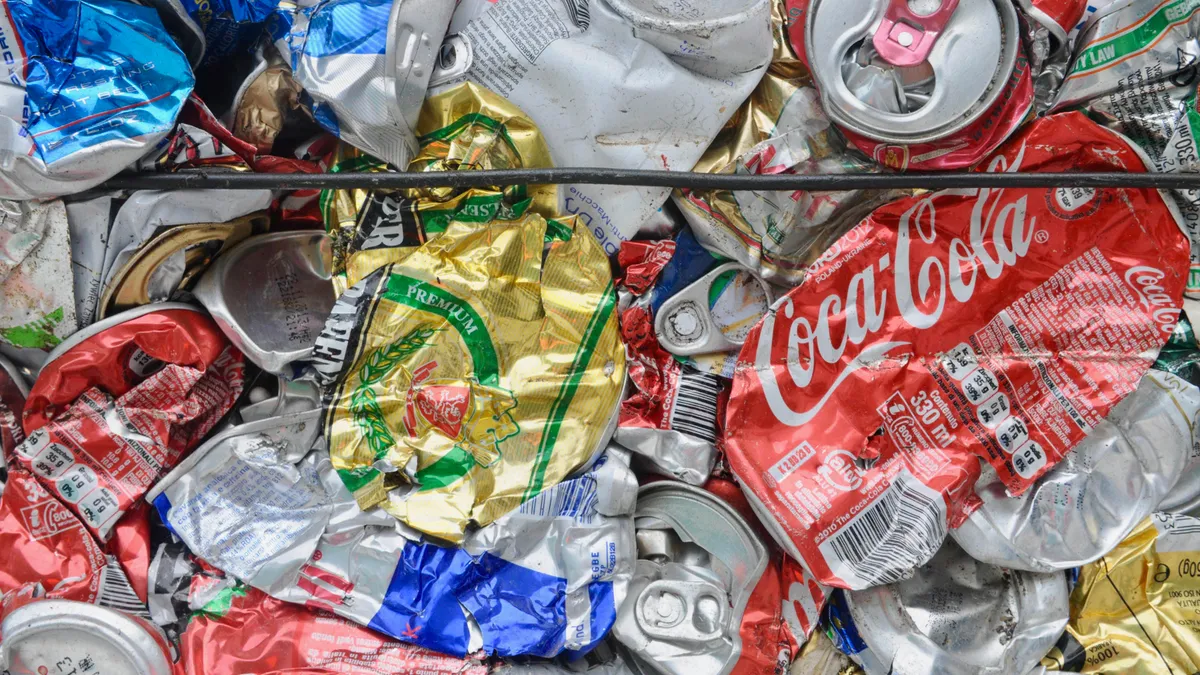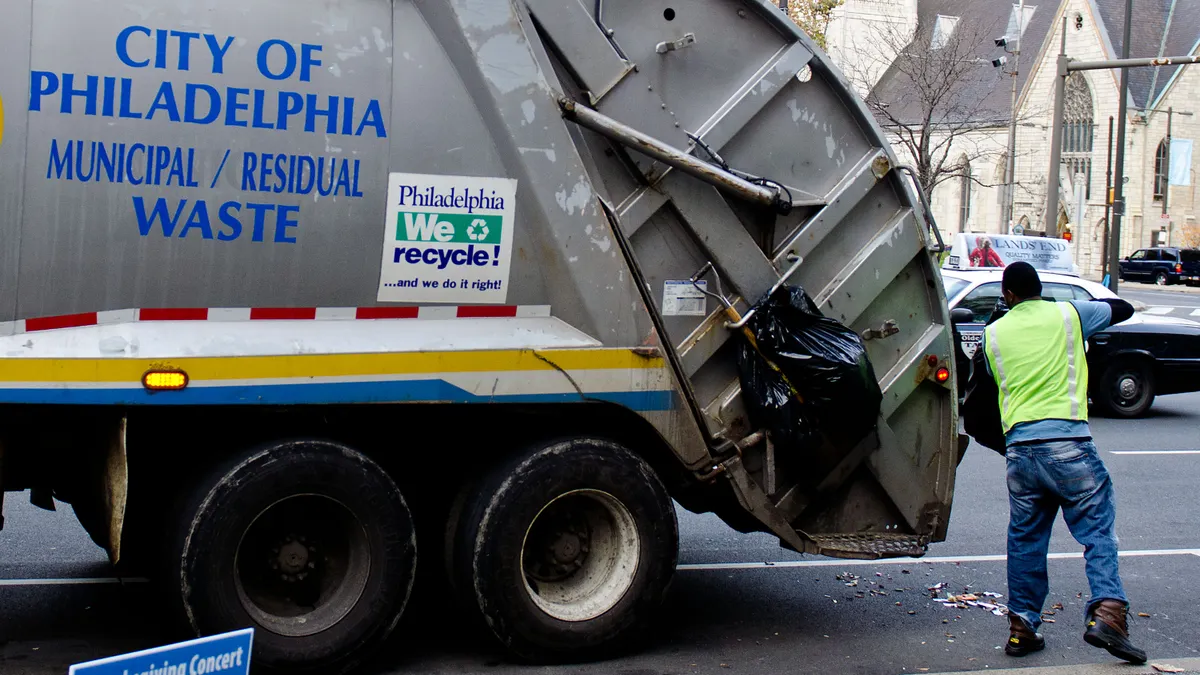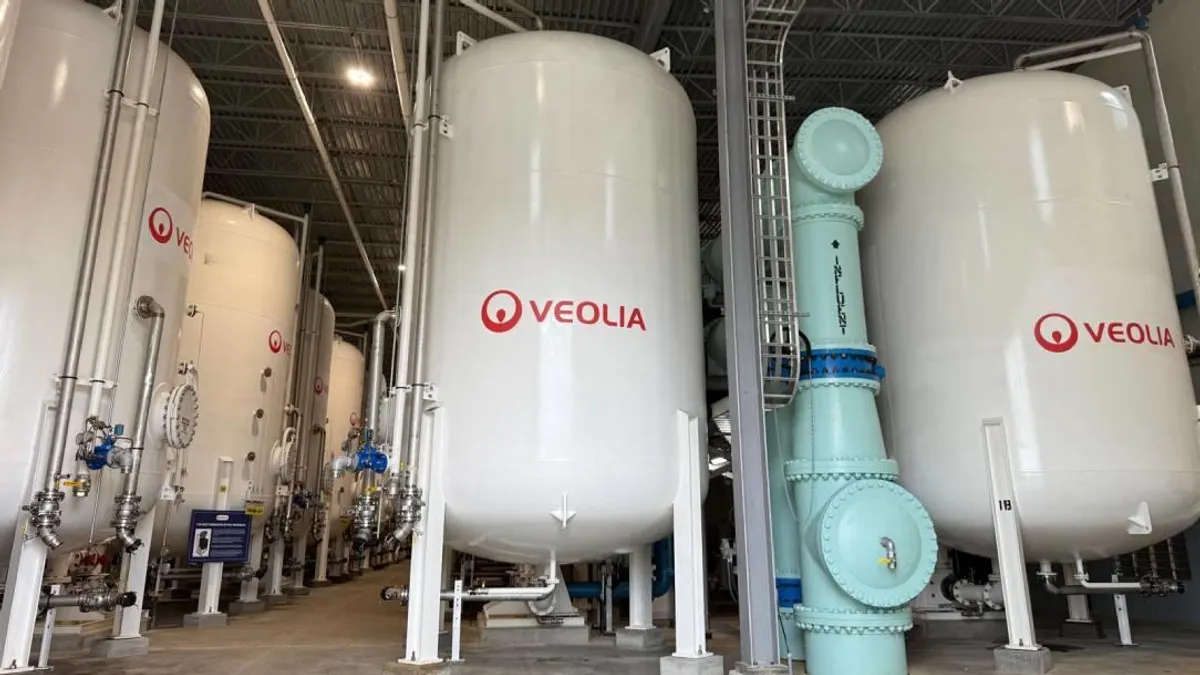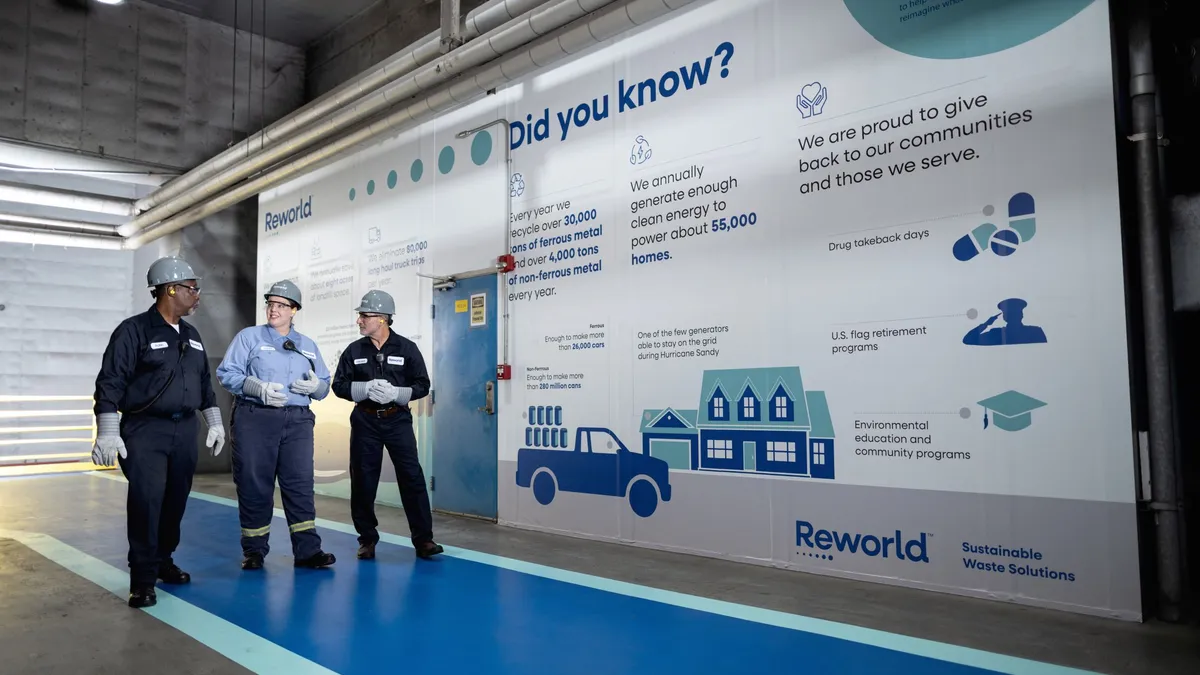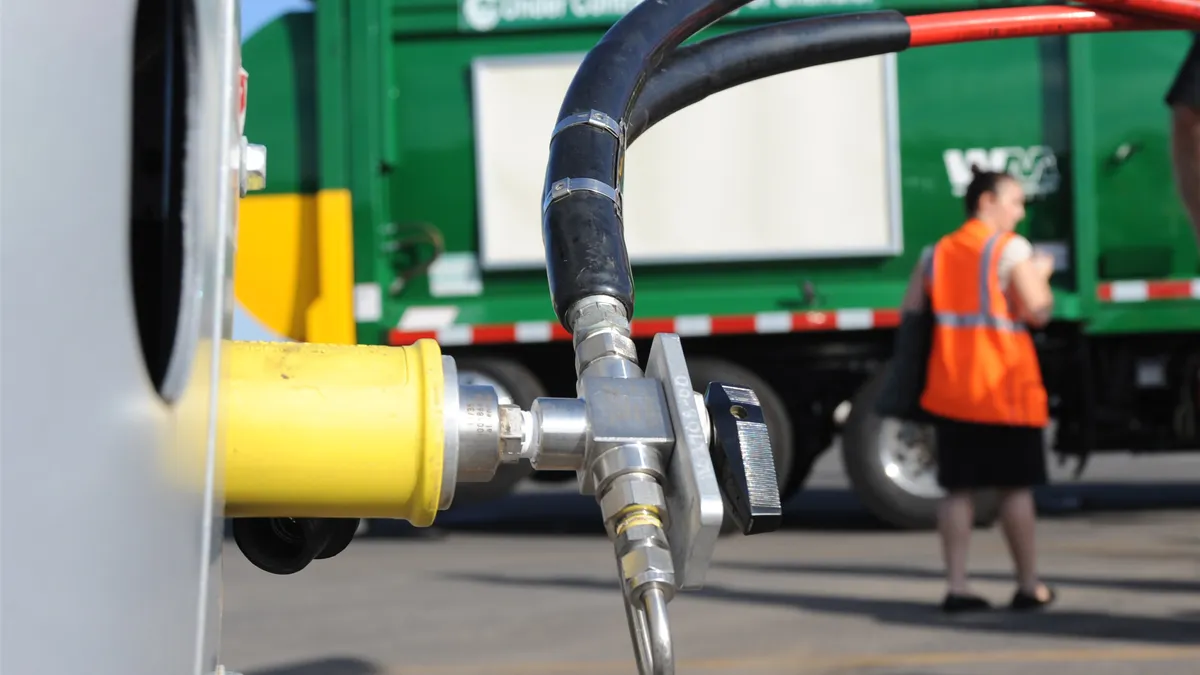The global coronavirus pandemic has spawned recycling industry changes that are challenging the used beverage can sector, at a time when it was already feeling a squeeze on multiple fronts.
“UBCs are probably the most affected metal market," Joe Pickard, chief economist/director of commodities at the Institute of Scrap Recycling Industries, told Waste Dive. "It’s been really bad."
UBC collection dropped off steeply since pandemic restrictions began in the United States, creating a major choke point for supply. The dip is occurring even though the volume of recyclables collected has shifted dramatically from commercial and industrial spaces to residential — where a large proportion of UBCs originate. This all comes shortly after an aluminum demand transition that began months ago.
“In 2019, there had been a concerted shift away from can sheet production in the U.S. to automotive sheet. As the U.S. was producing less can sheet, there was less demand for UBCs, which go into can production,” Pickard said.
Many major manufacturers shifted to auto sheet because it is a more profitable venture. Arconic, for example, last year invested $100 million to transition one of its plants from can to auto sheet production, according to the Wall Street Journal.
Simultaneously, a tariff exemption for imported can sheet worsened the situation for domestic aluminum production and UBC demand, Pickard said. He added that there is “too much aluminum being produced right now with respect to global demand." At the same time, major producers such as China and the Middle East continue to pump out new aluminum, further depressing prices.
Industry professionals believe the combination of these factors could push more aluminum consumers away from recycled feedstock in the coming months. “I suspect you'll see companies more reliant on primary aluminum,” said Matt Meenan, senior director of public affairs at the Aluminum Association.
Supply squeeze and a domestic dilemma
Since the pandemic began, many scrapyards have discontinued retail operations in which they purchase UBCs and other metals from people who visit their facilities. But the largest factor prompting the precipitous drop in UBC collection may be that many of the 10 states with container redemption programs have either openly or implicitly suspended their programs during the pandemic.
The moves were largely made to ensure worker safety due to uncertainty around how long the virus lives and is infectious on materials. Some states also requested that deposit program workers in grocery establishments be redistributed to positions where they are most needed due to the surge in business.
“Container deposit states are an important source of UBCs in the United States," Meenan said. "They account for 20% of all aluminum can consumption domestically, but they are responsible for one-third of all UBCs that come back."
Deposit programs are viewed as the preferable method for reclaiming UBCs because the materials are cleaner and of a higher quality than those collected in curbside recycling programs.
Analysts cite anecdotal evidence — but no firm data is yet available — indicating a portion of the UBCs that previously would have come in through deposit programs or scrapyard retail purchases are instead getting thrown out. Some curbside materials are also being disposed in communities where collection or processing of recyclables has been temporarily disrupted due to the coronavirus.
In some cases, residents appear to be stockpiling UBCs now that pricing is low, and they intend to sell the materials to scrapyards once prices rise. Similarly, many scrap aluminum brokers who purchased UBCs at pre-pandemic prices are holding onto them until mills and other consumers are willing to pay a higher price.
“That's created a supply crunch. It’s an artificial crunch because it’s not like there are less cans or consumption of beverages… The scrap is there, it’s just a matter of it coming in,” said John Betz, senior aluminum reporter at Argus Media. "There's a lot of brokers struggling to buy UBCs at a price that is profitable to supply mills. And mills struggle a bit themselves because they can't count on the flows.”
Pandemic restrictions are also throwing off the typical seasonal boost for UBCs. “This time of year normally is pretty good for UBC supply,” Betz said. “Hopefully, if stay-at-home orders come off [soon], that will help replenish the supply.”
Although other commodities have been hurt by a lack of international scrap movement when other countries — such as China and India — imposed lockdowns to stop the spread of COVID-19, the United States doesn’t export many UBCs, Pickard said. Therefore, the marketplace hasn’t been influenced much by overseas activities and relies heavily on domestic activity. Still, the market is affected by global primary aluminum consumption and pricing.
The last several years have ushered in a domestic phenomenon that cropped up because of the U.S. craft beer boom: trouble recycling cans with plastic labels.
Many of these breweries have opted to use cans over bottles to ease shipping, lower costs and better block UV light to enhance product freshness. But can printers aren't always able or willing to take on new clients, especially the smaller craft brewers that request shorter printing runs for their small, specialty batches. Therefore, many craft brewers purchase blank cans and affix plastic shrink wrap or sticker labels. Those labels do not come off well in the normal metal delacquering process during recycling.
Numerous metal and recycling organizations have run educational campaigns or produced design guides to teach the beverage industry the challenges with recycling UBCs that have plastics attached. The Aluminum Association and ISRI do not yet have data about whether more craft beers with plastic labels have been sold during the pandemic, but if true that would further complicate UBC recycling.
What lies ahead
Until the supply rebounds, UBC consumers might seek other aluminum sources to keep their operations running, which in turn could throw off recycled content in aluminum cans.
“As UBC levels go down, that has an impact on our ability to use recycled content,” Meenan said. The Aluminum Association estimates the average aluminum can contains 73% recycled content.
A silver lining of the pandemic is its influence on current UBC demand, as more people work from home and change their beverage consumption habits. “There is increased demand for cans right now, which is one of the slightly positive things,” Meenan said.
Industry analysts say it’s difficult to anticipate what the next few months will hold for UBCs because the pandemic situation is in a constant state of flux. Still, a popular hypothesis is that more scrap will flow soon and UBC prices could rebound, at least to some extent.
“I think we’ll see a big influx of UBCs when this [pandemic] is over with,” Betz said. “You might see the price of UBCs relative to new aluminum drop as those deposit states start to have a healthier flow back in. But it’s hard to say.”



